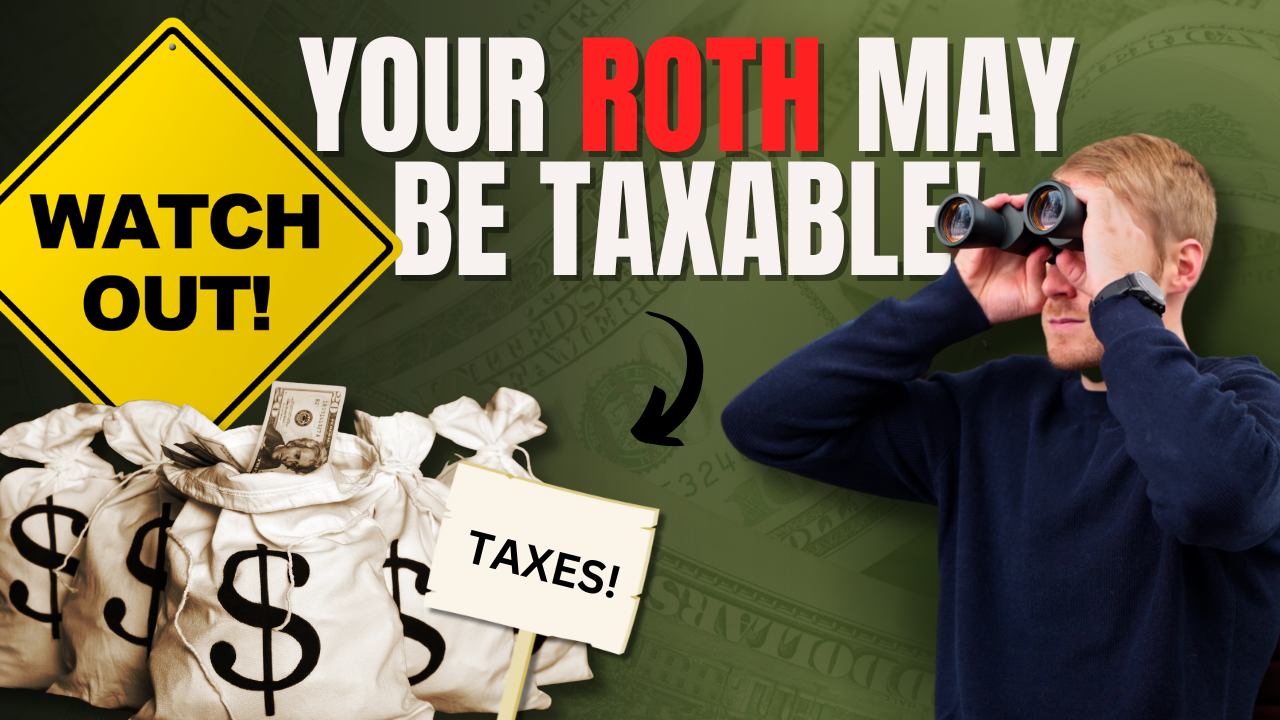Transcript:
Roth IRAs are supposed to be tax-free, right? Well, not always. Hi, I’m Hunter Brockway, founder of Boca Retirement Strategies. We help people retire successfully, stress-free with more money and fewer taxes. A little-known fact about the Roth IRA taxes. Most people assume all Roth IRA withdrawals are tax-free. That’s not always the case. Understanding how Roth IRA distributions are taxed can help you avoid penalties and unnecessary taxes. That’s where Roth IRA ordering rules come into play. These rules determine which funds you’re withdrawing first and whether they’ll be taxed or penalized. Roth IRA distribution ordering rules. What comes out first? A Roth IRA withdrawal can include contributions, converted funds, and earnings, or any combination of the three. The IRS has specific rules for which funds you can withdraw first. First, Roth IRA contributions. Next, Roth IRA conversions, each with its own five-year rule. And last, Roth IRA earnings. All Roth IRAs are
considered one for distribution purposes, meaning you can’t isolate one IRA funds separately from another. Let’s talk about the five steps to determine if your Roth IRA withdrawals taxable. Step number one, are you withdrawing a contribution? Good news, Roth IRA contributions are always tax and penalty free no matter your age. Step two, are you withdrawing converted amounts before age 59 and a half? Roth conversions are never subject to income tax again, however, if you withdraw converted funds before the five-year period or before age 59 and a half, you’ll face a 10% early withdrawal penalty unless certain IRS exceptions apply. Each conversion starts its own five-year penalty clock. Step three, are you withdrawing converted amounts after the five-year rule or after age 59 and a half? That’s great news, these withdrawals are completely tax-free and penalty free. Step four, are you withdrawing Roth IRA earnings before age 59 and a half? Watch out for this one, Roth IRA earnings withdrawn before 59 and a half can be taxed at ordinary income.
rates. They are also subject to a 10% penalty. Step five, are you withdrawing Roth IRA earnings after age 59 and a half and after the five-year period? If you’ve had any Roth IRA for at least five years and earnings are tax-free, if not, earnings are taxed at ordinary income rates, though no penalty applies after age 59 and a half. So take action. Don’t get caught off guard. Make sure you understand the five-year rule for Roth conversions and don’t get penalized. If you’re considering early Roth withdrawals, check whether you’re pulling from your contributions, conversions, or earnings. Plan ahead to keep your Roth IRA truly tax-free. If you found this video helpful, please like this video. It helps more people avoid Roth IRA mistakes. Bye.


